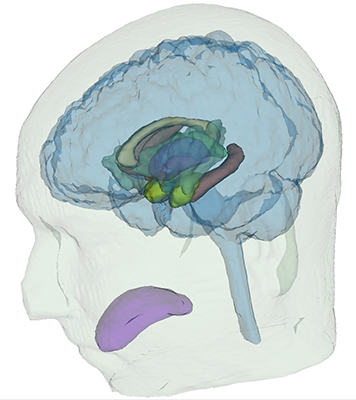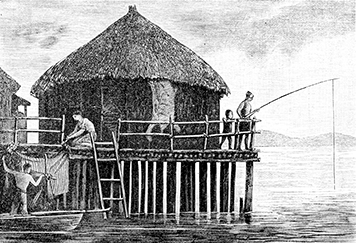I was an award-winning university teacher for many years, and I still enjoy lecturing about my work. I have three basic lectures prepared (and which can be modified for specific audience interests) that are suitable for university undergraduates, companies, and other organizations or groups.
If you are interested in arranging a talk, please contact me.
Lecture 1: Three Ideas about Human Brain Evolution

A general overview of the evolution of the human brain, appropriate for undergraduates with some background in anthropology or biology. I discuss three ideas covered in my book, The Lives of the Brain:
- Brain expansion in evolution is brain reorganization at the same time; in combination, these two facets of brain evolution may enhance the pace of cognitive evolution.
- Increased brain size may be intrinsically linked to expansion of the human lifespan.
- Relatively stable but regionally variable brain size during the time of Homo erectus may reflect a combination of offsetting cultural and biological factors influencing brain evolution.
Lecture 2: Theory of Mind, Theory of Food
Why do we eat what we eat? Like the first languages we learn as children, we also learn a particular way of thinking and eating food. We are omnivores, but our diets typically consist only of select items in a wider universe of edible foodstuffs. Our diet today reflects not just this developmental environment, but also our evolutionary history. Why are crispy and crunchy foods so popular? Why do sweet and salty foods push certain buttons in our eating minds? Food is powerfully linked to memory and emotion, which help form our deep, in a cognitive sense, theory of food. It’s not impossible to change our theories of food–we can learn second and third languages after all–but it is often more difficult than we expect.
Lecture 3: Feeling at Home
 We all know what it means to “feel at home,” but where did that feeling, or those feelings, come from? I look at home from an evolutionary perspective, tracing how our feelings and our emotions, which evolved long before humans and our ancestors built dwellings, came to be applied to home. We are a species of homebodies, but we are also “homeminded” as well. The deep origins of home have implications for life today. It may amplify our economic confidence when house and home become part of a larger, speculative market, and explain why the loss of home and the status of homelessness are so devastating.
We all know what it means to “feel at home,” but where did that feeling, or those feelings, come from? I look at home from an evolutionary perspective, tracing how our feelings and our emotions, which evolved long before humans and our ancestors built dwellings, came to be applied to home. We are a species of homebodies, but we are also “homeminded” as well. The deep origins of home have implications for life today. It may amplify our economic confidence when house and home become part of a larger, speculative market, and explain why the loss of home and the status of homelessness are so devastating.